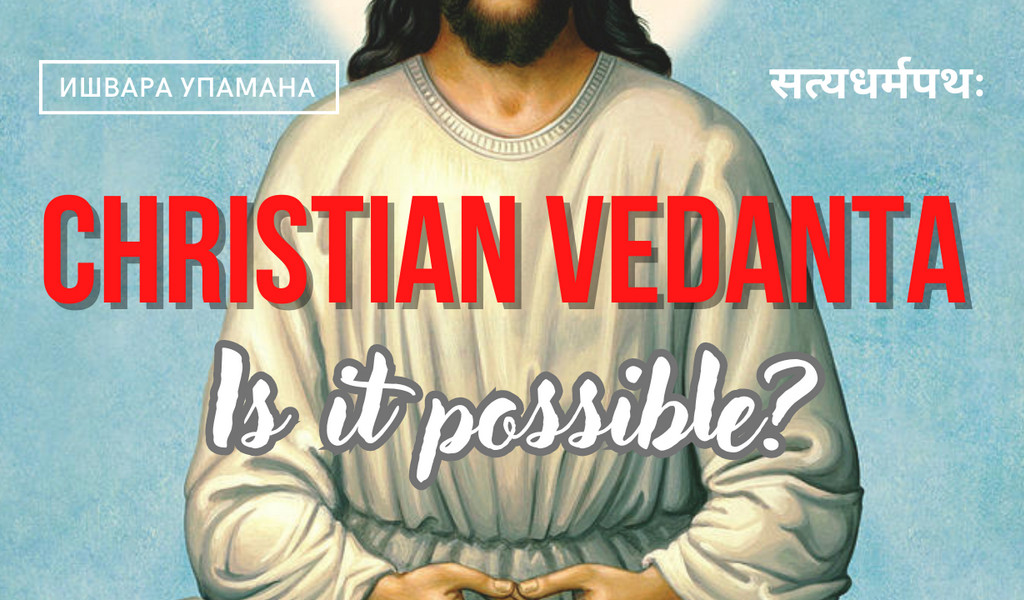The confluence of Eastern and Western philosophies often sparks thought-provoking discussions about the nature of spirituality and existence. One such fascinating intersection lies at the crossroads of Christianity and Vedanta, with the term "Christian Vedanta" capturing the essence of this dialogue. In this article, we delve into a thought-provoking speech by Ishvara Upamana, exploring the possibility of harmonizing Christian doctrine with the principles of Vedanta.
Unveiling the Speaker
Ishvara Upamana, also known by his Ukrainian name Mikhailo or Michael Sheludko, invites us into his world of inquiry. As he introduces himself, he lays the foundation for a conversation that bridges cultural, spiritual, and philosophical divides.
Vedanta's Multifaceted Streams
The speech kicks off by discussing the diverse streams within Vedanta, ranging from the well-known Advaita Vedanta to the lesser-known Dvaita Vedanta and Bhakti Vedanta. These streams, each presenting their own interpretations, prompt the question: Can there be a place for Christian Vedanta within this rich spectrum?
Vedanta's Central Question
At the heart of Vedanta lies the query concerning the relationship between the individual soul (Jiva) and the eternal, infinite spirit (Brahman). Ishvara highlights the plurality of interpretations offered by different Hindu teachers and sets the stage for examining Christianity's perspective on this inquiry.
Personal vs. Impersonal God
Ishvara delves into a fundamental distinction between Christian theology and Vedanta philosophy: the nature of God. Christianity perceives God as a personal being with whom individuals can cultivate a dynamic and spiritual relationship. This contrasts with the impersonal, endless spirit often associated with Vedanta. This divergence lays the groundwork for analyzing the potential harmony between these worldviews.
Christian Vedanta: A Meeting Point
Ishvara raises a critical question: Can Christian theology and Vedanta's principles coexist? He explores how both systems share a common thread—the acknowledgment of an eternal spirit. While Vedanta might lean toward the impersonal, and Christianity favors the personal, Ishvara suggests that these differences can be reconciled, offering a unique perspective on the Absolute Truth.
Philosophy and Theology: A Dynamic Symbiosis
The speaker highlights the relationship between philosophy and theology, citing how Greek philosophy shaped Christian teachings. He posits a fascinating notion: What if Indian philosophy, specifically Vedanta, could similarly contribute to Christian theology? Ishvara's insight opens a door to cross-pollination between these rich traditions.
Harmonizing Christian and Vedanta Ideals
The core of Ishvara's argument emerges: the possibility of blending Christian and Vedanta concepts. He suggests that Vedanta Sutra, a revered text, could serve as a bridge between these two systems. By utilizing this text and its interpretations, Christian theologians could potentially articulate their own doctrines in new and resonant ways.
The Nature of the Soul: A Key Focus
Ishvara addresses the divergent opinions within Christianity about the nature of the soul (Atman). While Christian thought lacks a singular doctrine on this matter, the central theme remains—the soul's creation by God and its potential for immortal existence. This contrast with the concept of rebirth in Hinduism is highlighted, marking a key difference.
Harmonizing Atman and Brahman
The climax of the discourse explores the harmonization of Atman (soul) and Brahman (eternal spirit). Ishvara suggests that Christian individuals can adopt Vedanta's idea of unity with the Divine Self through God's grace. This notion aligns with Upanishadic expressions like "Aham Brahmasmi" and "Tat tvam asi."
Vedanta as a Christian Revelation
Ishvara's conviction becomes clear: Vedanta can indeed be embraced within Christian thought. He asserts that the principles of Vedanta can be understood more deeply through the lens of Christian Revelation. In his eyes, Christianity unveils the key to unlocking the intricacies of Vedanta, allowing for a unified understanding.
Conclusion: A Bridge Beyond Borders
Ishvara Upamana's speech offers a unique perspective on the confluence of Christian theology and Vedanta philosophy. His explorations reveal a nuanced understanding that transcends cultural and spiritual boundaries. As we ponder his words, we are encouraged to engage in thoughtful dialogues that enrich our collective understanding of spirituality. In this era of interconnectedness, Ishvara's message resonates—an invitation to embrace diversity and explore uncharted realms of thought.
